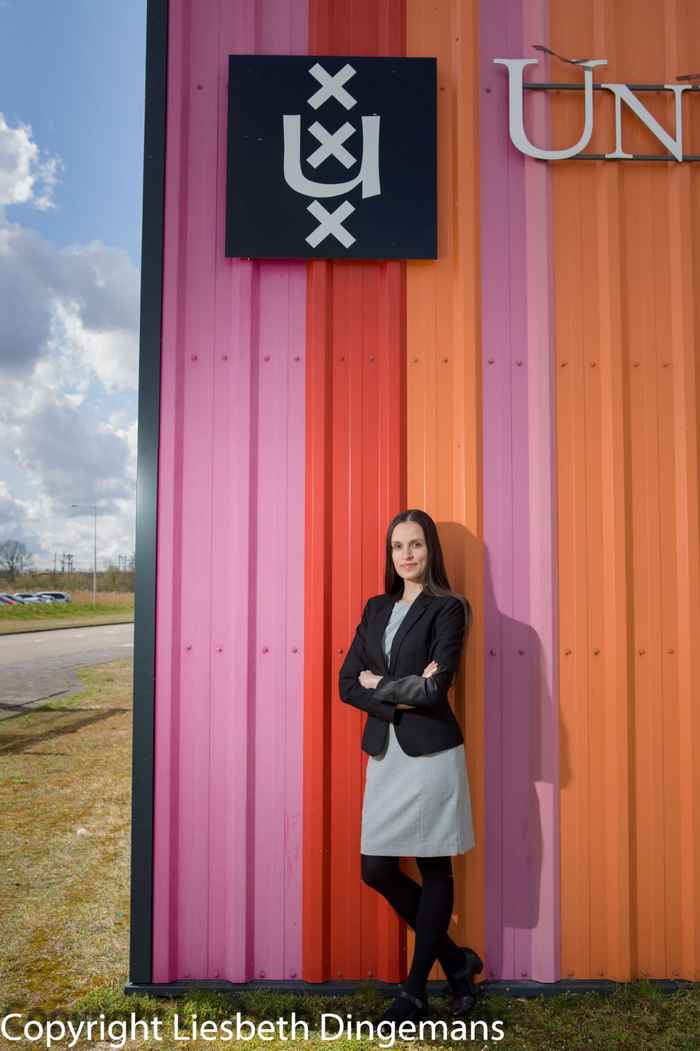International Day of Women and Girls in Science: why role models matter
9 February 2023

The Large Hadron Collider (LHC) is one of the most advanced particle accelerators in the world, designed to detect anything produced through elastic collisions. Flavia works with the LHC for the ATLAS project, where she specializes in finding new particles. She explains: ‘At the moment we only understand about 5% of what the universe is made out of, the rest is dark matter and dark energy. Even though we know and measure many things very precisely in particle physics, there are still many unanswered questions. For example, how can gravity work together with all other forces? We investigate these by creating collisions in the LHC to find new particles. A great example of this is the Higgs Boson particle, which was discovered in 2012’.
An early passion for science
Flavia’s passion for science started when she was a young girl after her grandfather gave her the book Cosmos written by Carl Sagan. She found the book to be full of fun and fascinating stories. Flavia: ‘It really sparked my imagination and inspired me to continue learning about science. I started wondering about things like why the sky is dark at night, and where people come from. To me, these are very compelling questions if you’re a curious kid.’
A place for everyone
She continued reading about science but noticed a lack of representation of women in all this. ‘As a girl, you see all these super cool science stories, but there are hardly any women in them. Even though they contributed a lot. The only woman frequently mentioned is Marie Curie and she had to win two Nobel prizes to get acknowledgement! That’s a pretty high bar.’
Since then, Flavia does feel like representation has gotten better. ‘If you look around here, in the Netherlands, I see a more diverse faculty staff compared to when I started my bachelor in 2005.’ She thinks having all kinds of role models is important if we want to continue creating equal access in science: ‘I did part of my PhD research in association with Caltech and had an amazing professor there, Maria Spiropulu. She was a mentor to me. We really connected based on our personalities because we’re both extroverts, and she really helped me see how women can be themselves and be great scientists. But I think it's also really important we support people who are more introverted, who aren’t comfortable claiming their spot in a world dominated by men. Science has to become a place where we welcome everybody, not just specific people with certain personalities.’
Take a chance and reach out
That’s why she would advise everyone who wants to enter a career in science to look for their role models: ‘You can really use the internet for your benefit in this. You may need to spend some time searching, but everyone can find incredible role models in their field. Use social media, for example. I have so many excellent female academics in my Twitter feed from all areas of science.’
And once you’ve found those role models, Flavia recommends you reach out to them. ‘I think most of us are more than happy to talk to people. If a young girl approaches me with a question or wants to know what my work is like, what difficulties I run into or something else, I would find the time to connect with her. I really believe reaching out to people makes a big difference. Some people might be too busy to reply and that’s okay as well, but you can always try! A response may turn into a small mentoring relationship, even if it’s just a few messages. Just look around in the right places and don’t be afraid to reach out to people, you never know what will happen.’
Want to read more about Flavia de Almeida Dias’ research? Read the article ‘Hunting for elusive particles at the Large Hadron Collider’.